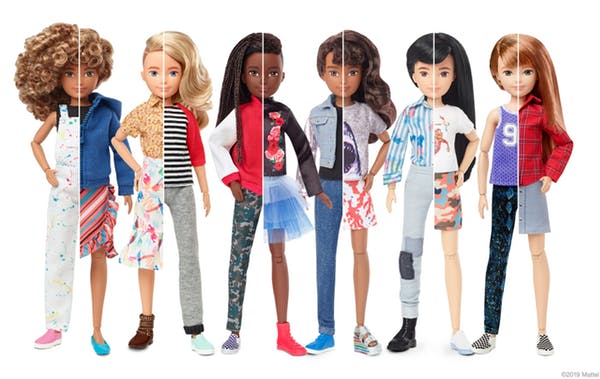We are told that gender is a social and cultural construct, but is it really so? When we talk about gender in our daily lives, do we really understand the real meaning of it or do we just confuse sex with gender? Gender is more about the identity of a being and sex is about the body. Sex is assigned at the time of birth by the biology of our bodies but gender is our identity which is more of what we feel like / how we perceive of ourselves from inside. In our lives, our surroundings effect us in many ways and shape the way we conceive of gender roles, as we observe these in our surroundings. So, here it becomes a construction through society. Gender based roles, expectations and other attributes vary with differences in the cultural context, here this makes it a cultural construct.
In our surrounding, the concept of gender includes characteristic aptitudes which includes expectations of behaviors of both male and female (masculinity and femininity). Gender biases affect all the genders in different ways, in Indian society men have been seen as superior to women. Words like ‘mankind’ as opposed to ‘womankind’ or ‘humankind’ assert the preference of males over females and men are seen to represent the ‘universal’.
In the film named “Tamasha” which I watched for the first time in my graduation days, its concept is very different from mainstream Bollywood films. This film follows the tale of Ved, a kid who is fascinated by stories and the specialty of narrating them. The film begins where the hero meets a young lady (Tara) in Corsica, where the two of them are travelling. Together, living in an unfamiliar land, they experience life as they have consistently wished to – unreasonable and with no assumptions, causing an agreement to not uncover their actual personalities to one another. They provocatively chat with one another by encapsulating the celebrated Bollywood characters ‘Don’ and ‘Mona Darling’. Tara experiences passionate feelings for the unconventional, excited, imaginative, and unconstrained Ved, just to meet him four years after the episode and understand that he isn’t a similar happy individual she met before. Ved is the normal, the average man – he turns into an architect, to satisfy his dad’s desires. He functions as a task director, in light of the fact that corporate life is the race everybody should run. He carries on with life on rehash – playing out similar activities regular – activities directed not by oneself, but rather by society. Understanding that he isn’t the man she succumbed to, Tara dismisses his proposal to be engaged. This film shows us the life of a man, stuck in the rut of daily life and living up to everyone’s expectations. When Tara makes him realize the disparity between who he really is and who he pretends to be, Ved breaks down. Ved gets fired from office and is tormented by his family’s attitude when he tells them about his situation. Throughout the movie we see flashbacks of how he molds into something he isn’t, and isn’t allowed to embrace his true self by anybody except Tara. In the end, his family only accepts his true self after he brings to light the torment he has gone through and repeatedly emphasizes that he is the hero of his story; it is he who will decide his fate, not anyone else.
Most Bollywood films are based on a similar plot, depicting very similar characters. The man is the incredible, conclusive person who settles on judicious decisions and is consistently in charge of his feelings. The lady is frequently lost, love-struck, vulnerable and standing by to be saved by a man. Films flourish off these social figures of speech-these films sell. However, Tamasha set out to tell another story, a story that accompanied a couple of powerful contrasts.
I feel patriarchy isn’t just affecting women but also men. Like women, there are expectations froma man to become tough and the one who will rescue all fragile beings like women. This has been settled, man will dominate and women will be the subordinate to him. From where did we arrive at this conclusion? Who is giving us these norms of how do men and women come to behave in such a way? If we try to address these questions, it comes into debate and no one gets answers to their questions. Gender is a personal choice, a personal feeling but people try to make it a public choice, public interest. In 2018, section 377 had been removed, which gave people of every gender the right to choose their sexual orientations legally, before this there was a punishment if you had a sexual orientation for same sex persons. So, it was a good decision but what is the actual reality of people’s mind-set even now? Because in my home, I have got stuck into debates with family members regarding this, they say it is a mental disorder. So, my question is, who are you to decide wrong or right?
I belong to a typical Indian family, that follows patriarchy but at the same time they are allowing me an opportunity to continue my studies. Now, sometimes I feel it is a change but very little because my brother and I are dealing with different problems created by a patriarchal mindset.I am told how to behave, how to live, how not to fall in love or choose my own life partner etc.
In my opinion, to arrive at equality it is important to understand and unpack the problem first. The problem can’t get resolved by getting matriarchy over patriarchy. To find gender equality, we need to understand gender inequality first. To give education for solving the problem of inequality, we need to work towards quality education over quantity education, experience-based learning over learning outcomes, discussions over examinations.
Rajni Patel has competed her Masters from the School of Educational Studies, Ambedkar University Delhi.














